(EDITOR’S NOTE: This is the latest installment in Idaho Education News’ ongoing, in-depth coverage of the University of Idaho’s proposed purchase of the University of Phoenix. Over several months, senior reporter Kevin Richert has requested and read thousands of pages of court filings and public records pertaining to the proposal; those documents are the foundation for this story.)
State Board of Education members put their trust in one employee: University of Idaho President C. Scott Green.
As they considered the U of I’s proposal to buy the University of Phoenix, board members received almost all of their information from Green and his team. “It was their deal, they were presenting it to the board,” said State Board President Linda Clark.
Board members didn’t contact Phoenix or Tyton Partners, the New York-based financial partners working the sale on Phoenix’s behalf. They didn’t press for details about other bidders — even after another state university publicly walked away from a Phoenix purchase. When Green said the U of I was in competition with other bidders, board members took him at his word.
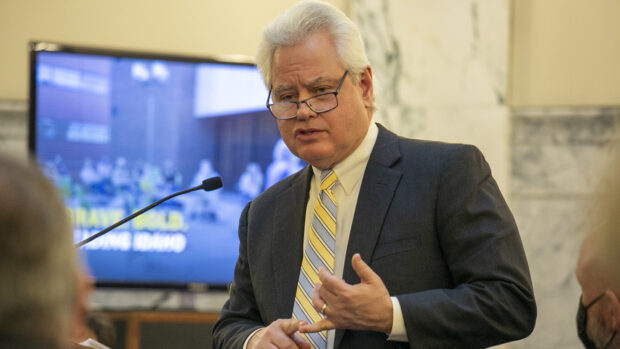
Board members placed similar faith in Jenifer Marcus, their longtime attorney. Without asking questions, they heeded their deputy attorney general’s counsel and took their discussions behind closed doors. “If Jenifer Marcus provides her opinion on an issue related to education law or open meeting law, I trust her implicitly,” State Board member Kurt Liebich said. “She’s forgotten more about that topic than I could ever know.”
Since the spring, the State Board’s deliberations about the $685 million Phoenix purchase have been cloaked in secrecy. The board held three closed executive sessions to discuss the idea. Then in one single open session on May 18, members unanimously endorsed the deal — without taking public comment.
‘The board only received information from President Green or his negotiations team regarding the University of Phoenix transaction.’ State Board of Education Executive Director Matt Freeman, from a recent court deposition.
Attorney General Raúl Labrador has sued the State Board — questioning the legality of the closed meetings, and the underlying contention that other public entities were bidding against the U of I. An open meetings lawsuit is a civil complaint. But both sides in the ongoing dispute agree on one point: If Labrador prevails in court, the Phoenix megadeal could be dead.
Idaho Education News researched this story by reviewing 450 pages of draft transcripts of recent court depositions. EdNews also reviewed hundreds of pages of additional documents, obtained through public records requests filed with the State Board of Education and the University of Idaho.
In October, Labrador’s team deposed three State Board members and the board’s executive director. Depositions are sworn statements, taken under oath. The interviews are combative — punctuated by snippy exchanges between Josh Turner, Labrador’s acting solicitor general, and Trudy Hanson Fouser, the State Board’s hired independent counsel. Turner’s questions are pointed and adversarial. And the process continues; Labrador’s legal team wants to depose Green, but that interview hasn’t taken place, U of I spokeswoman Jodi Walker said Wednesday.
Through spokesman Mike Keckler, the State Board declined to comment on the depositions. But the legal documents provide a delayed but detailed glimpse into closed-door talks leading up to a controversial decision. The decision could be a moneymaker for the U of I, or a drain on taxpayers. The decision could also reshape higher education in rural Idaho, and the state’s 134-year-old land-grant institution.
March 2023: Before the first board meeting
The U of I and Phoenix first began talking in February, signing a confidentiality agreement at the for-profit university’s behest. That agreement, which remains intact, has shrouded many details about the purchase.
Liebich was brought into the conversation soon after.
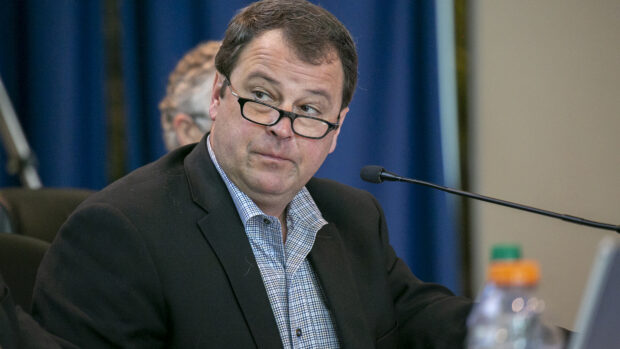
“It was early March when President Green called me and said, ‘Hey, Kurt, we have potentially a really interesting opportunity here,” Liebich said in his deposition. “And I did what almost anybody would do in that situation. I Googled University of Phoenix and started reading some of the public information.”
The fact-finding process quickly became more formal.
In early March, Liebich and fellow State Board members Bill Gilbert and David Hill spent time perusing a virtual “data room” set up by the sellers. The data room provided a “very thorough” but confidential window into Phoenix’s finances, Liebich said. Access to the information carried a tradeoff. Liebich said he immediately recognized “a moral and ethical duty” to abide by Phoenix’s confidentiality agreement.
On March 9 and March 14, Green and his negotiating team met with State Board Executive Director Matt Freeman, Liebich and Gilbert. Liebich and Gilbert were brought into the early discussions because of their business experience. Liebich, the head of a Boise wood products firm, holds an MBA from Harvard University. Gilbert, the co-CEO of a Boise investment firm, holds a finance degree from the U of I.
Meanwhile, behind-the-scenes discussions between the U of I and the sellers intensified.
In a March 13 email — sent to Liebich, Gilbert, Hill and others — Green said he had just spoken to Greg Finkelstein, managing director of Tyton, Phoenix’s financial partner. Green and Finkelstein discussed competitors. “He shared that there are two others interested,” Green wrote.
The email’s subject line included a cryptic code name: “Re. CONFIDENTIAL: Project Neptune.”
On March 13, Finkelstein emailed Brian Foisy, the U of I’s vice president for finance and administration, and a point player in the negotiations. Finkelstein requested a “non-exclusive and non-binding indication of interest” — in writing, by March 17. The letter made clear that Phoenix could discuss a sale with other bidders, and Phoenix reserved the right to turn down the U of I, “even if your proposal represents the highest purchase price offered.”
And the letter forbade the U of I from contacting any Phoenix students, past or present employees or corporate partners, without approval in advance.
March 22: Executive Session No. 1
Serving the final weeks of his term as State Board president, Liebich had to decide when, and how, to bring the full eight-member board into the discussion.
He scheduled a closed-door executive session for March 22.
‘We were told that there was a significant interest and competition and that that was one of several reasons why we needed to move fairly expeditiously.’ State Board of Education President Linda Clark, from a recent court deposition.
His decision marks a defining moment, setting the stage for the legal dispute unfolding in Ada County district court. Labrador filed a lawsuit on June 20, contending that the March 22 meeting, and the other closed meetings that followed, violated the state’s Open Meeting Law.
The lawsuit places Labrador at odds with one of his own lawyers. Marcus — the deputy attorney general assigned to the State Board — advised the board to meet behind closed doors, and attended the meetings.
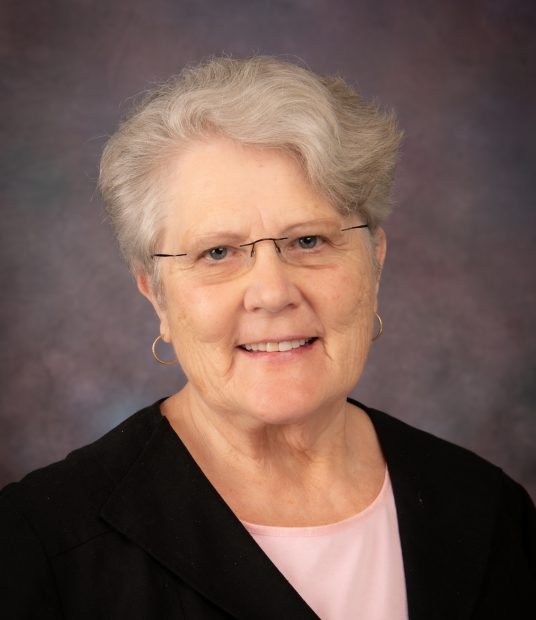
In their depositions, Liebich, Clark and Freeman staunchly defend Marcus, who has worked with the State Board for more than a decade. Clark, a career public educator and former West Ada School District superintendent, went so far as to say she hasn’t actually read Idaho’s open meeting law herself. Instead, Clark said she trusts Marcus. “I’ve been on the board for eight years and she has never yet steered us wrong.”
Marcus is not representing the State Board in the open meetings lawsuit, and she has cited a conflict of interest. Marcus continues to work as the State Board’s deputy attorney general on other matters. The board has hired Fouser, a Boise attorney, as outside counsel in the open meetings case.
The closed meetings, recommended by Marcus, fall under a specific clause in state law. The language covers “preliminary negotiations” on a transaction pitting Idaho against “governing bodies in other states or nations.”
The depositions paint the picture of a preliminary discussion. “(These were) very, very high level conversations introducing the board to the topic,” Freeman said.
For some board members, like Clark, it was their first chance to hear about the idea and ask questions.
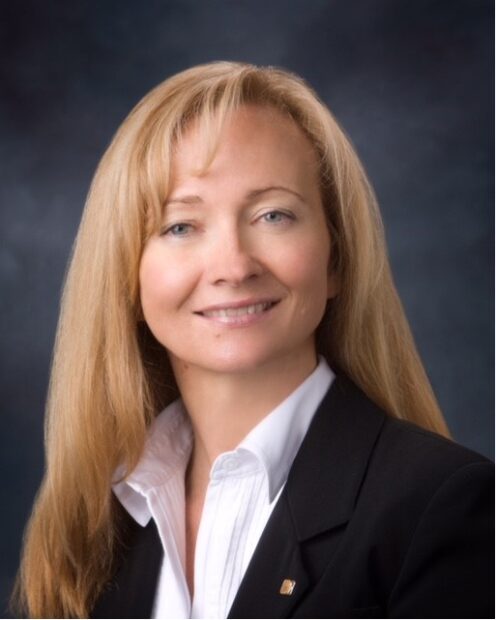
“It was more about gaining knowledge about trying to understand the transaction rather than deliberation,” said State Board member Cally Roach.
Money may or may not have come up, although Liebich said he wasn’t sure.
It’s “very possible” that Green threw out a ballpark figure on a purchase price, just to get a sense of the board’s interest, Liebich said. “That would not be atypical for a buyer to do that.”
Competition did come up. Green and his team made it clear that the U of I wasn’t the only bidder.
Roach did not ask for specifics. And she didn’t recall other board members asking either. But one name may have come up.
“I believe the University of Arkansas was mentioned at that first meeting.”
April 25: Executive Session No. 2
Arkansas’ interest in Phoenix had been a matter of public record for months.
And Liebich was watching Arkansas warily. In his deposition, he said he was concerned that the State Board would expend “a lot of brain power and money” exploring the U of I’s bid, only to watch Arkansas seal the deal. In an April 19 email to Freeman and Gilbert, Liebich suggested bankers aligned with the Arkansas bid were using Idaho “as a stalking horse,” all to get their deal done.
On April 24, the picture changed abruptly. On a 5-4 vote, Arkansas’ board of regents rejected the Phoenix purchase.
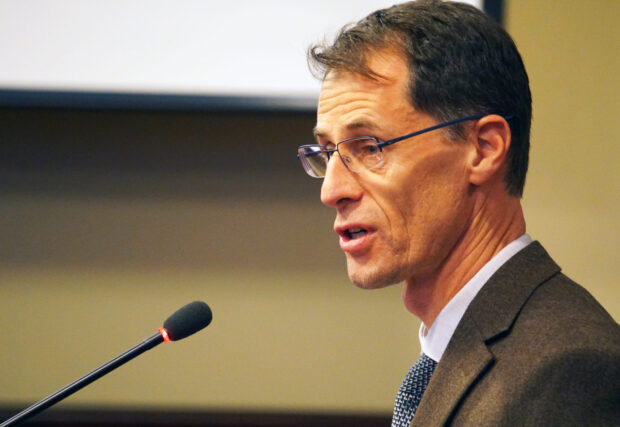
The next morning, Freeman and a couple of board members got on the state’s plane to travel to a regularly scheduled board meeting in Moscow. Freeman found an article on the Arkansas regents vote, called it up on his phone and passed it around.
Not surprisingly, Arkansas came up in the State Board’s April 25 executive session. Green told the board that the U of I was still in a competitive bidding process, but without going into specifics. The depositions identified no other states or nations — public bidders that would meet the legal requirement for the closed State Board’s meetings.
Arkansas, of course, is a public entity, and Liebich still considered Arkansas a competitor.
“I didn’t view that Arkansas was completely out of the hunt,” he said. “They had done a lot of work on this deal to walk away at the last minute.”
Green talked the State Board through other thorny issues. He walked the board through a slide deck, spelling out financing options and the U of I’s “due diligence” in legal and regulatory topics, Freeman said. Green also reminded the board that the clock was ticking. Phoenix wanted to have a buyer nailed down by May 19, its deadline to get on the agenda for the November meeting of its accrediting body, the Higher Learning Commission. (The commission is meeting this week, and accreditors for Phoenix and the U of I must sign off on the purchase in order for it to go forward.)
Board members didn’t deliberate during the April 25 meeting, Liebich said. “We weren’t there yet. … We were still trying to understand … what the risks were.”
The Phoenix discussion wasn’t the State Board’s only closed meeting that week. The board also held executive sessions for performance evaluations of the university presidents, including Green.
Ultimately, presidents answer to the State Board, which has hiring and firing authority. But on April 25 — and at other Phoenix-related meetings, before and since — board members turned to Green for answers.
May 15: Executive Session No. 3
With Phoenix’s deadline looming at week’s end, the State Board reconvened in Boise early on a Monday morning.
‘The only way we were going to get this deal done is to manage it the way we did. … We’re trying to strike the best deal for the state of Idaho.’ State Board of Education member Kurt Liebich, from a recent court deposition.
First, they met in open session to approve statewide tuition and fee increases, including a 5% increase at U of I, and raises for the school’s college and university presidents, including a 5.5% raise for Green.
Then the board went behind closed doors for one last discussion of the Phoenix purchase.
Competition came up once again. The U of I said other bidders might “potentially” come forward, Roach said, but they weren’t identified.
But the board and the U of I both were about ready to make a move.
“By May 15 we had completed nearly all of what we viewed as all the due diligence,” Liebich said in his deposition. “They were obviously very far along in negotiating the terms of the transaction.”
Far enough along, evidently, to jump the gun.
On May 15, apparently unbeknownst to State Board members, U of I attorney Kent Nelson filed articles of incorporation with the state of Idaho. The filing christened NewU Inc. — a nonprofit separate from the U of I, but governed by a board that included Nelson and other U of I administrators. The nonprofit would be in charge of securing financing for the purchase, and would ultimately assume oversight of Phoenix as a rebranded, nonprofit school. (NewU has since been renamed Four Three Education, after Washington, D.C.-based NewU University demanded the U of I drop the original name.)
Nelson’s filing didn’t remain secret for long. By week’s end, the filing was a rallying point for the Idaho Freedom Foundation, a libertarian-leaning think tank vehemently opposed to the Phoenix purchase. But in their depositions, Clark and Roach said they knew nothing about the filing when the board met on May 15.
In his deposition, Freeman said the board did not — and could not — act on articles of incorporation on May 15. Open meetings law explicitly prohibits an agency from making any decision in an executive session. “Our deputy attorney general never would have allowed that.”
But Freeman also sought to downplay the issue. The early filing was necessary in order to ensure the state could meet Phoenix’s May 19 deadline, and it didn’t preempt the State Board.
“If the board had not approved the creation of NewU Inc., then that entity was just a shell that would have dissolved,” he said.
May 18: The open meeting
Within 90 minutes, the deal was done. The State Board gave the go-ahead for NewU, and Green’s ambitious plan to acquire Phoenix.
The unanimous vote seemed like a foregone conclusion. It certainly appeared that way to one person with a deep understanding of the process. “You and your board were able to accomplish what I could not,” University of Arkansas President Donald Bobbitt wrote in a morning email to Green, hours before the vote. “Our loss will be a significant gain for your institution and your state.”
In open session that afternoon, board members discussed the risks — and the fact that the U of I might have to commit up to $10 million a year to backstop the loan payments. They discussed the reputational risks that come with acquiring a for-profit behemoth with decades of bad press and baggage.
But ultimately, board members seemed swayed by profit potential — and new opportunity. The U of I says it could receive at least $10 million a year in profits off of Phoenix, which serves 85,000 students nationally. And university officials said Phoenix’s online delivery infrastructure, honed over nearly half a century, could enhance learning opportunities in rural Idaho.
And in their depositions, board members didn’t just defend their decision. They beamed about it.
The U of I had beat out the competition, Clark said — including, she insisted repeatedly, bids from other state institutions.
“It just stands to reason that this would be (highly competitive),” she said. “It isn’t rocket science here. If anyone is up to date on the issues of education today they know what direction it is taking. Online education is powerful.”
Liebich was more succinct. “We just got the golden goose, or we’re trying to get the golden goose.”
And at one point in his lengthy and sometimes tense deposition — taken remotely , while Liebich was in New York City on a family vacation — the State Board member let his exasperation show.
Turner, Labrador’s solicitor general, asked Liebich if he would have been able to vote for the purchase on May 18, without the information he’d gleaned from the three closed sessions.
“That’s the craziest question I have ever heard,” Liebich said. “To do a transaction, you need to do three months of work and due diligence. …
”I mean, that’s just a crazy question, man.”
Kevin Richert writes a weekly analysis on education policy and education politics. Look for his stories each Thursday.
